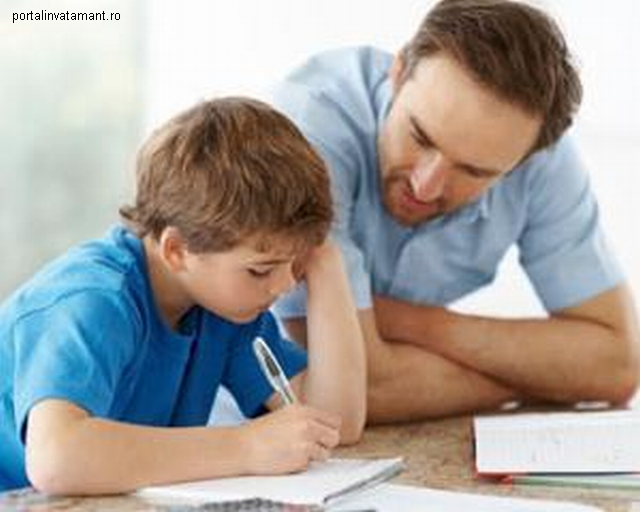Homeschooling
Homeschooling, or educating children at home as an alternative to education in a classic school is regulated in several foreign countries. Homeschooling is present in Romania as well although there is no legal background specifically drawn up for it yet.

Christine Leșcu, 25.02.2015, 13:42
Homeschooling, or educating children at home as an alternative to education in a classic school is regulated in several foreign countries. Homeschooling is present in Romania as well although there is no legal background specifically drawn up for it yet. There are, however, several legal provisions mostly related to distance learning, that allow home schooling in Romania. The child can be enrolled with an umbrella-school abroad, in a country where homeschooling is regulated and where distance learning is allowed for primary school, middle school and high school.
Magdalena Balica, an expert with the Institute for Education Sciences has told us why some parents want to home school their children: “There has been a growing interest in home schooling lately, mostly as parents reacted to what’s going on in the education system. However, deciding on whether to regulate home schooling or not at national level is quite difficult. In my opinion, each parent who decides to educate his or her child at home has a great responsibility.”
One of the parents who went for home schooling is Gabriel Curcubet, a Presbyterian priest from the Transylvanian city of Odorheiu — Secuiesc. All his 4 children, aged between 18 and 13, have been educated at home.
Gabriel Curcubet: “I’m a Presbyterian priest and I see things from both Christian and social perspectives. I carefully consider what a child receives from society and how a child should behave within society. I think that children can learn better certain social manners and ethic principles at home than in school. At home we have implemented several learning methods. Our eldest son is exclusively home schooled. We had registered him with a school from the United States and we were his only teachers until he was in the 6th grade. After that we enrolled him with a school in Hungary, which allowed distance learning and held certain classes via Skype. He studied by himself for the SAT and TOEFL exams. He got excellent results and he is not trying to enroll for a university abroad. The other children are registered with a school in the United States and are studying mostly under our guidance. We don’t need to teach them everything in the curriculum though. There are computer programs that can assist them and certain subject matters they can learn by themselves.”
Given that teaching methods are different when it comes to home schooling, it’s only natural that testing methods are also different from those used in the institutionalized education system. Gabriel Curcubet: “The testing methods in the case of home schooled children are very different from those used in public schools. In public schools everything is based on grades. If children do not know the answers when they’re tested they get smaller grades and that’s it. We don’t do that at home. We make sure they eventually learn the answers to the questions they initially did not know. There is enough time for them to learn a subject matter. A home-schooled child, for instance, can study the geography for the 5th grade in just one week. There is a huge difference between home and school education. In school they can be distracted easily. And they also waste a lot of time to get to school in the first place. At home, a child can learn in 15 minutes before breakfast more than he would in school in a whole hour.”
The question is, however, if children educated at home are not isolated from people of their age. Gabriel Curcubet says this is not an issue, and brings as arguments the volunteer activities and team sports his kids take part in. Nevertheless, experts say children’s interaction with people of the same age also improves their ability to learn.
Magdalena Balica again: “I believe that at present, given the huge resources that we have available thanks to the new technologies, school no longer has a monopoly on knowledge. I don’t think a child who doesn’t go to school is deprived of any opportunity to fulfil his or her potential. But I also believe that the learning process has major social components as well. For instance, recent theories indicate that a child faced with a learning subject is able to reach his or her maximum potential by learning alone. But when they can interact with peers, during the learning process, there is a leap that we call ‘zone of proximal development.’ In other words, a child has a chance to have his or her own understanding of a particular thing contrasted with the understanding of a different person. Comparing and contrasting your own understanding with the views of others is an opportunity for reflection which triggers extraordinary leaps in learning.”
Moving on from individual cases to regulating this education alternative, Magdalena Balica says Romania is not yet ready for this decision, given the already high dropout rate in the country: “Giving a law overnight, which would allow for homeschooling for anyone and in any circumstances, would be a great loss, because these parents who are in a difficult situation might take it as an excuse, as one more excuse to keep their children from going to school. This is a risk we cannot take. On the contrary, these social categories need support to send their children to school. And there is also another aspect. The countries that have legislated this option have very well designed systems to assess children’s knowledge, to measure the children’s different skills. In Romania, we still need to work on how we assess the skills of a child at a certain age. Probably, in the future, homeschooling will be a good option, as long as we are able to use the new technologies. But in this respect, too, Romania is not in the best place today.”
However, Gabriel Curcubet, through the organisation he represents, called “Home Schooling Romania Association,” has contacted around 200-300 families which practice homeschooling. And many others would like to join, he says. But the negotiations with the representatives of the Education Ministry on regulating this alternative schooling system in Romania have failed so far to yield any results.






























